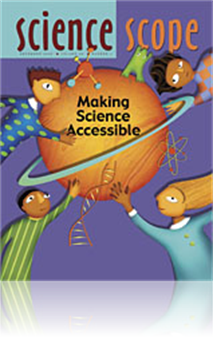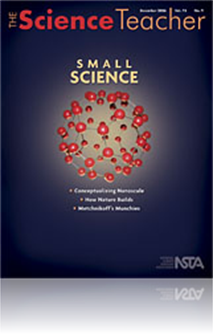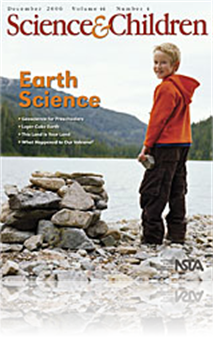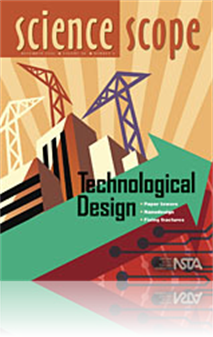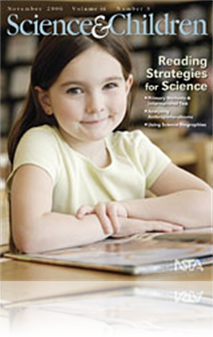All Resources
Journal Article
Science Sampler: Consistency + Diversity = Scientific Literacy
Celebrate diversity, build a sense of community, and foster science literacy in each of your students by implementing the strategies that are described in this article. Students will learn how to communicate within small groups and how to become inde...
Journal Article
The black box activity described in this article, created as part of the National Science Foundation-funded Internships in Public Science Education Program (IPSE) at the University of Wisconsin—Madison, introduces students to the idea of remote ima...
Journal Article
Though you can’t tell just by looking at them, layers of sediments tell us much about Earth’s history—when the ocean flooded continents, when mountains were formed, when climate was warmer or cooler, and so much more. Stratigraphy, the study o...
Journal Article
Student inquiry projects with first graders? What a frightening idea! At least that’s what one first-grade teacher thought until she actually did it. Although she taught and extended the inquiry-based science kits with gusto, she had done little to...
Journal Article
Perspectives: On Writing in Science
Many teachers use writing in science as a recording tool (science notebooks) or to find out what students have learned (constructed response tests). Yet writing experts Judith Langer and Arthur Applebee (1987) tell us that writing to evaluate knowled...
Journal Article
Issues In-depth: The ins and outs of curbside recycling
In recent years, numerous municipalities in the United States and abroad have implemented either mandatory or voluntary curbside recycling programs. While the materials are not recycled at the curbside, the term curbside recycling generally represe...
Journal Article
Science Sampler: Special lessons from special needs students
Something amazing happens when you change your teaching methods to accommodate learners at all ability levels: It can improve your overall success as a teacher. In this article, the author shares five lessons that she has learned from students with s...
Journal Article
Science Sampler: Thriving in the co-taught classroom
Classrooms are becoming more diverse as students with specific learning needs are moved out of self-contained special education classrooms and into mainstreamed classrooms with their non-disabled peers. The use of the co-teaching model allows for ext...
Journal Article
Career of the Month: An interview with Ear, Nose, Throat Doctor Scott Howard
Ear, nose, and throat complaints, such as allergies, ear infections, sinusitis, and sore throats, are the number one reason people go to the doctor. Diseases and disorders of the head and neck, particularly the ear, nose, and throat (ENT), are treate...
Journal Article
The NSTA President's Message: Feedback and Response
In her editorial, “Quality Science Teachers: Essential to America’s Future,” which appeared in the September 2006 issue of several NSTA journals, NSTA President Linda Froschauer wrote passionately about the importance of cultivating the science...
Journal Article
The Early Years: Rocks Tell a Story
Sedimentary rocks, formed by an accumulation of sediments (tiny pieces of rocks or minerals) in a water environment, tell a story that many students may be familiar with. They may have visited areas where water or wind carried sediments and deposited...
Journal Article
Many microscopy activities used in classrooms involve observations of structures in cells and organisms, and in research the microscope is an important and powerful tool for investigating cellular processes. To introduce high school students to exper...
Journal Article
Paper Towers: Building students' understandings of technological design
“What do you think the National Science Education Standards are referring to when they talk about science and technology?" The authors posed this question to a group of undergraduate education majors during a science teaching methods course. The st...
Journal Article
Repairing Femoral Fractures: A Model Lesson in Biomaterial Science
Biomaterial science is a rapidly growing field that has scientists and doctors searching for new ways to repair the body. A merger between medicine and engineering, biomaterials can be complex subject matter, and it can certainly capture the minds of...
Journal Article
The Early Years: Communicating About Collections
Children love to collect all kinds of things, from sticks to colorful leaves to trading cards. These objects are special to children because they found the objects and chose them for a quality determined by them. For preschool students, the quality...



